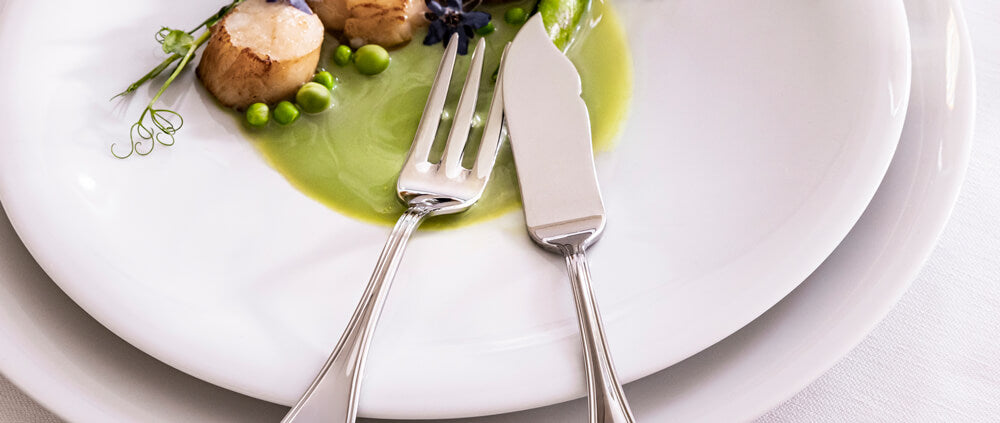In the world of culinary arts, where precision and grace are paramount, the role of knife etiquette at weddings is often underestimated. For kitchen professionals, the ability to wield a knife with confidence and elegance is not just a skill but an art form. As weddings become increasingly elaborate and sophisticated, understanding the nuances of knife etiquette is essential for both chefs and guests. This article delves into the intricacies of knife usage at weddings, offering insights and advice for kitchen professionals who aim to uphold the highest standards of culinary decorum.

Understanding the Importance of Knife Etiquette
Weddings are a celebration of love, unity, and tradition. As such, they require a level of decorum that extends beyond the choice of menu. Knife etiquette is a crucial element in ensuring that the dining experience is seamless and enjoyable for all. For kitchen professionals, mastering this etiquette is not only about avoiding faux pas but also about showcasing their expertise and commitment to excellence.
At weddings, the use of knives goes beyond mere functionality. It is a reflection of the chef's professionalism and the overall ambiance of the event. Ensuring that knives are used appropriately can enhance the dining experience, leaving a lasting impression on guests.
Key Principles of Knife Etiquette at Weddings
While the principles of knife etiquette may seem straightforward, they require attention to detail and practice. Here are some key guidelines for kitchen professionals to consider:
1. Proper Handling and Presentation
The way a knife is handled and presented at a wedding can speak volumes about the chef's skill and respect for tradition. Knives should always be held with confidence and precision, ensuring that they are used for their intended purpose. When presenting a dish, the knife should be placed neatly alongside the fork, with the blade facing inward.
2. Cultural Sensitivities
Weddings often bring together diverse cultures and traditions. As such, it is important for kitchen professionals to be aware of any cultural sensitivities related to knife usage. For example, in some cultures, it is considered impolite to point a knife at someone or to use it to gesture. Being mindful of these nuances can help avoid misunderstandings and ensure that all guests feel respected and comfortable.
Enhancing the Dining Experience
For kitchen professionals, the goal is to create a dining experience that is both memorable and enjoyable. This involves not only serving exquisite dishes but also ensuring that the presentation and use of utensils are impeccable. By adhering to knife etiquette, chefs can elevate the overall dining experience, leaving guests with a sense of awe and appreciation.
3. Silence is Golden
One often overlooked aspect of knife etiquette is the importance of minimizing noise. The clatter of cutlery can be distracting and diminish the ambiance of a wedding. Kitchen professionals should strive to cut food silently, ensuring that each slice is smooth and precise. For tips on achieving this level of finesse, check out this article on cutting food silently.
4. Precision in Cutting
The art of cutting en crote dishes requires a delicate touch and a sharp knife. Kitchen professionals should ensure that they use the right technique to slice these dishes without disrupting their presentation. For more insights, explore this guide on slicing en crote dishes.
Embracing Tradition and Innovation
While tradition plays a significant role in wedding etiquette, innovation is equally important. Kitchen professionals should not shy away from incorporating modern techniques and tools to enhance their craft. By balancing tradition with innovation, chefs can create a dining experience that is both timeless and contemporary.
5. The Role of Modern Utensils
Incorporating modern utensils into the dining experience can add a touch of sophistication and convenience. However, it is essential to ensure that these utensils align with the overall theme and ambiance of the wedding. By doing so, kitchen professionals can enhance the dining experience while maintaining a sense of tradition.
For more insights on how to use a fork and knife appropriately, visit this helpful guide on using a fork and knife.
Conclusion: Mastering Knife Etiquette for a Memorable Wedding
In conclusion, mastering knife etiquette at weddings is an essential skill for kitchen professionals. It involves understanding the cultural nuances, perfecting the art of silent and precise cutting, and embracing both tradition and innovation. By doing so, chefs can create a dining experience that is not only enjoyable but also memorable for all guests. As the culinary world continues to evolve, the importance of knife etiquette remains a testament to the artistry and professionalism of kitchen professionals.

FAQs
1. Why is knife etiquette important at weddings?
Knife etiquette is crucial at weddings because it ensures a seamless and respectful dining experience, reflecting the professionalism of the chef and the overall ambiance of the event.
2. How can kitchen professionals minimize noise when using knives?
Kitchen professionals can minimize noise by using sharp knives and employing precise cutting techniques. For more tips, check out this article on avoiding noisy knife cutting.
3. What role does culture play in knife etiquette?
Culture plays a significant role in knife etiquette, as different cultures have varying customs and sensitivities regarding knife usage. Being aware of these nuances can help kitchen professionals avoid misunderstandings and respect the diverse backgrounds of wedding guests.
This article contains affiliate links. We may earn a commission at no extra cost to you.


























